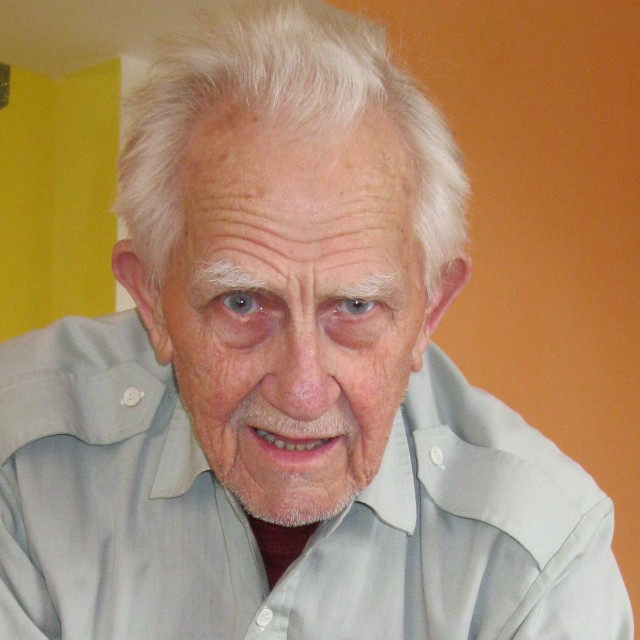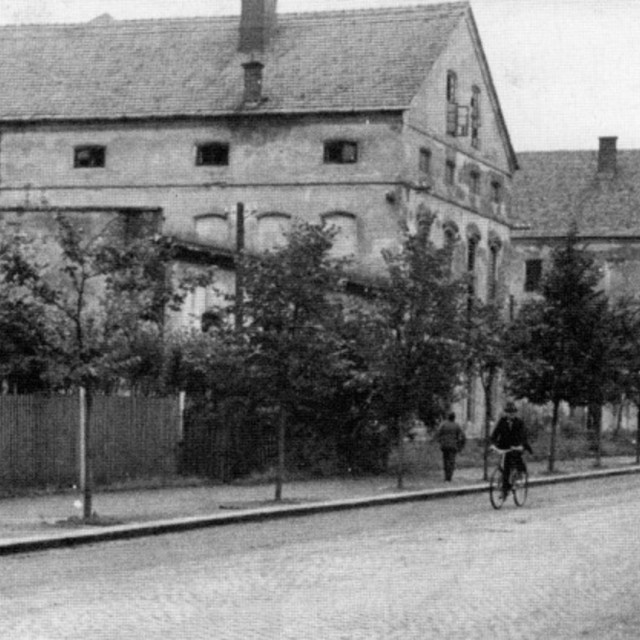He Emptied the Magazine
On March 14, 1939, a soldier, Miroslav Šolc, was accidentally caught in the gunfight among German and Czechoslovak soldiers in the Czajánek´s barracks. He was a quartermaster sergeant and was responsible for supplies of meat. Though that day the soldiers had a curfew, he had to check the ordered meat at the butcher. When he was on the way back to his regiment, he saw a German troop in the square in Místek. The 84th Infantry Regiment of Wehrmacht crossed the frontier of the Protectorate one day earlier than the other German troops. They were worrying that they might come late and this important industrial area would be occupied by the Polish army. One part of the regiment headed from the square to the Czajánek´s barracks. “I saw the convoy heading slowly to the main road to the Czajánek´s factories and there they stopped. Before they stopped I ran into the barracks. The moment I came in they were already arguing and one of the guards started to shoot.” And a gunfight flared up. The Czechoslovak soldiers had a desperate shortage of the ammunition and the Germans were outnumbered. Also, Miroslav Šolc was given one of the guns. “They gave me an LMG and I emptied the magazine.” The gunfight lasted roughly half an hour. The Czechoslovak soldiers were running out of the ammunition, so they did not have any other choice but to give up. After the gunfight, Miroslav Šolc managed to disappear from the barracks inconspicuously and went back to his troop.
Hodnocení
Abyste mohli hodnotit musíte se přihlásit!
Trasy
Příběh není součastí žádné trasy.
Komentáře

Miroslav Šolc
Miroslav Šolc was born in 1918 in Řepiště near Místek. In 1937 he joined the 8th infantry regiment of the Czechoslovak army. He graduated from an officer school and afterwards was assigned to border garrisons near Jemnice as a group commander. There he experienced a couple of gun battles. After the Munich Agreement he was reassigned to garrisons near the Polish border, where soldiers were attacked by the Polish militia. After the annexation of the Těšín area by the Polish army, Miroslav was called back to Místek. By coincidence, he was in Czajanek barracks on the 14th of March, 1939 and took part in the only armed conflict between Czechoslovak units and the occupation forces. Soon after, he was released from the army and took part in the resistance by helping aviators cross the borders of Protectorate. He also established contact with a resistance group Lvice at his workplace. He took part in several train sabotages, distributed illegal print and smuggled ration coupons for the guerilla soldiers. On the 13th of January, 1943 the gestapo arrested him and after a series of brutal interrogations in Ostrava sent him to Auschwitz where he worked in a gravel-pit. He was nearly beaten to death by the German commandant. Alexej Čepička, the future communist minister of defense, helped him out after that. Later, Miroslav Šolc was assigned to a group which was to exsiccate Pin swamps in today's Belarus territory. But instead of that he was transported, in August, 1943 along with a group of prisoners to Buchenwald and three months later to Dora-Mittelbau concentration camp. He worked in a fire brigade and then in a surgery at nearby Mittelwerk factory where V-1 and V-2 rockets were produced. In May 1945, Dora was liberated by the Russians and Miroslav Šolc was transported to the Red Cross in Leipzig. During the next several months he recovered from the injuries he sustained in Auschwitz. Before Christmas of 1945 he finally made it home. After the war he received a disability pension and a tobacco shop in Nový Jičín. The work did not satisfy him, however so he became a mining directorate. At the present time, he lives in his native Řepiště and has been retired for over forty years.



